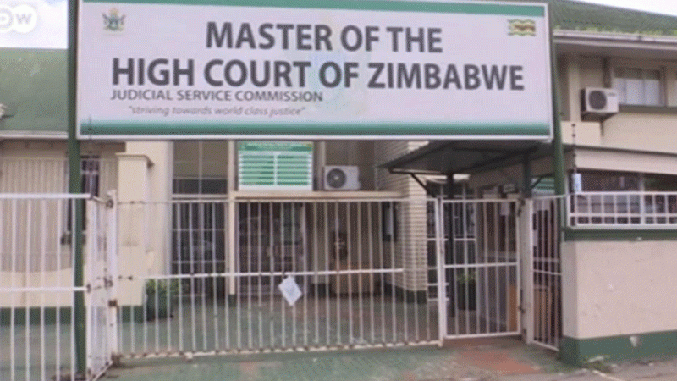
The Administration of Estates Amendment Act [No 3 of 2024] has ushered in a seismic shift in the governance and operational structure of the Master of the High Court’s Office, marking a significant step towards modernising estate administration in Zimbabwe.
Key amendments, particularly the substitution of Part II of the principal Act, introduces a corporate governance framework designed to enhance transparency, efficiency and accountability.
Key governance changes:
- Establishment of the Master’s Office board (section 4A):
A pivotal change is the establishment of the Master’s Office board.
The Act establishes the Office of the Master of the High Court as a body corporate capable of suing and being sued, signifying its autonomy.
The board, comprises a chairperson (a person qualified to be a High Court judge), the Master and members with expertise in deceased estate, law, accounting, HR, IT and government finance, who oversees the Master’s Office.
This board’s composition, as detailed in the Act, ensures a multidisciplinary approach to governance, addressing potential shortcomings of a purely administrative structure.
The board’s functions are clearly defined in the Act, emphasising policy determination, staffing, disciplinary powers and overall administration.
- Zim headed for a political dead heat in 2023
- Sakunda hail SA stadia tour
- Rufaro Stadium refurb gathers momentum
- Record breaker Mpofu revisits difficult upbringing
Keep Reading
- Autonomy, accountability and audit (section 4B-4J):
The board has been granted significant autonomy, operating independent of external control, except for audit purposes.
This autonomy is balanced with accountability through mandatory annual reports to the Justice, Legal and Parliamentary Affairs minister or any other minister to whom the President may, from time-to-time, assign and Parliament.
Policy direction can be given by the minister, but such direction must adhere to strict guidelines and be transparent.
Furthermore, the Act establishes a clear framework for the Master’s Office’s funds, accounts and audits, ensuring financial transparency.
The introduction of independent auditors, alongside the potential for Auditor-General oversight, reinforces financial probity.
- Staffing and board structure (section 4E, fourth schedule):
The Act also clarifies the role of the master and assistant masters’ offices, and where records will be held, improving clarity for the public.
In addition, the board is empowered to employ and manage staff, ensuring a professional and efficient workforce.
The fourth schedule outlines qualifications, terms of office, and procedures for board members, promoting good governance practices.
The fifth schedule outlines the powers of the board, which provides the ability to modernise the Master's Office.
Overall, the amendments reflect a move towards aligning with international best practice in corporate governance, particularly in the public sector.
The establishment of an independent board separates policy-making from operational management, a cornerstone of good governance.
Mandatory reporting, audits and clear financial management procedures enhance transparency and accountability.
The board's composition and the emphasis on professional staffing promote expertise and efficiency.
Finally, the clear financial management and audit procedures reduce the risk of corruption.
In South Africa, the Master of the High Court’s Office also operates within a legal framework that emphasises accountability.
However, the South African system is more integrated within the Department of Justice and Constitutional Development.
While this provides administrative support, the Zimbabwean model’s autonomy may offer greater flexibility and responsiveness.
In Botswana, the Administration of Estates Act also provides for the Master of the High Court, but the structure is more traditionally bureaucratic, with less emphasis on a separate, independent board.
The Zimbabwean amendments represent a more progressive approach.
In conclusion, the amendments have far-reaching implications.
Increased transparency and accountability will likely enhance public trust in the estate administration process.
The board’s focus on policy and staffing should lead to improved efficiency and reduced delays.
Clear financial controls and audits will help to curb corruption.
The ability of the board to manage its own affairs, allows for modernisation of the office.
However, successful implementation will depend on the board’s effectiveness and its ability to exercise its autonomy responsibly.
Adequate funding and resources will be crucial for the Master’s Office to fulfil its new mandate.
The transition from the old to the new system will require careful management.
The Administration of Estates Amendment Act represents a significant step towards modernising estate administration in Zimbabwe.
By embracing corporate governance principles, the Master’s Office is poised to deliver a more efficient, transparent and accountable service to the public.
- Beatrice Moyo is a partner and legal practitioner practising at Mushoriwa Moyo in Harare, Zimbabwe. She writes here in her personal capacity. She can be contacted on Beatrice Moyo on beatrice@mushoriwamoyo.co.zw.










